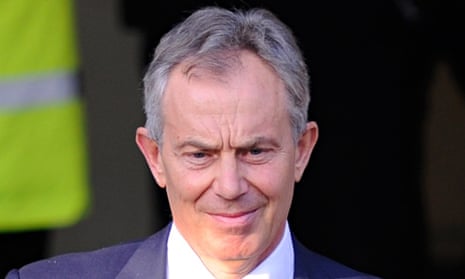Nearly 12 years after the invasion of Iraq, Tony Blair has been challenged to accept his role in creating the religious extremism that is gripping parts of the world,.
Appearing at the World Economic Forum in Davos, on a panel titled “Religion, a pretext for conflict?”, the former prime minister was accused of helping to create the current turmoil in the Middle East.
Audience member Henning Zierock, president of Society, Culture of Peace, won scattered applause when he told Blair: “I think you have a great responsibility for the conflicts we have now.”
Blair tried to rebut the charge, arguing that the causes of religious hatred predate his alliance with George W Bush. He pointed out that extremism has risen in France, despite its opposition to the second Gulf war at the time.
“My view is, you can debate the political decisions … but at some point we’ve got to understand that this extremism has grown up over a long period of time, over decades. Its roots are deep within a perversion of religion, a perversion of the religion of Islam,” Blair said.
Today, parts of western and northern Iraq are under the control of Islamic State (Isis). Blair said he personally supports intervention to help people in Syria and Iraq where terrorism is “engulfing” their lives.
He also defended the decision to oust Saddam Hussain, as the former dictator “wasn’t exactly a force for stability, peace and prosperity for his country, and was responsible for killing many, many hundreds of thousands of people”.
Blair’s message to Davos was that governments around the globe must commit to ensuring young people are educated towards religious tolerance and respect, and against religious intolerance.
But there was no avoiding the legacy of his military action. Fellow panelist Hamza Yusuf Hanson, the Islamic scholar, explained that government legitimacy is a crucial issue driving religious instability. Something George W Bush failed to grasp. “In the first Iraqi war, [President] Bush was loath to go into Iraq because he was fearful of creating a political vacuum, he explained.
“Unfortunately, with the intervention that occurred with Bush Two, the assumption was ‘we can simply replace a government’. But replacing a government, as we all see, is almost impossible.”
